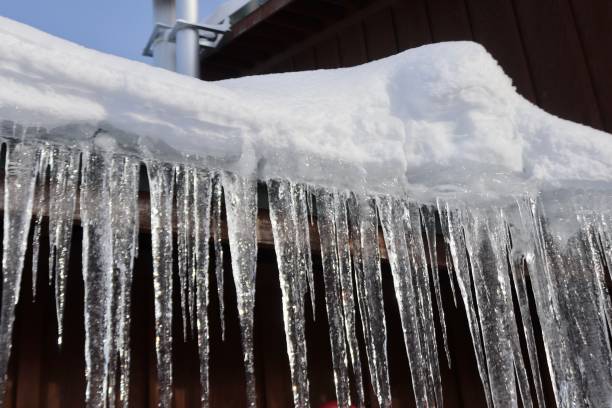Crucial Advice to Avoid Frozen Pipes in Cold Weather
Crucial Advice to Avoid Frozen Pipes in Cold Weather
Blog Article
What're your beliefs about Helpful Tips to Prevent Frozen Pipes this Winter?

Winter can wreak havoc on your pipes, specifically by freezing pipes. Below's how to avoid it from taking place and what to do if it does.
Introduction
As temperatures decline, the threat of frozen pipelines increases, potentially causing expensive repair work and water damage. Recognizing exactly how to avoid frozen pipelines is essential for house owners in chilly climates.
Comprehending Frozen Pipes
What causes pipes to freeze?
Pipelines freeze when revealed to temperatures below 32 ° F (0 ° C) for extended periods. As water inside the pipelines ices up, it broadens, putting pressure on the pipe walls and possibly creating them to rupture.
Risks and damages
Icy pipes can result in supply of water disruptions, property damages, and costly repairs. Ruptured pipes can flood homes and trigger extensive architectural damage.
Indications of Frozen Pipes
Recognizing frozen pipes early can stop them from breaking.
Just how to determine icy pipes
Search for lowered water flow from faucets, uncommon smells or noises from pipes, and noticeable frost on revealed pipes.
Prevention Tips
Insulating vulnerable pipelines
Wrap pipes in insulation sleeves or make use of warm tape to safeguard them from freezing temperatures. Concentrate on pipes in unheated or exterior locations of the home.
Heating strategies
Maintain interior areas appropriately warmed, especially areas with pipes. Open closet doors to allow warm air to distribute around pipelines under sinks.
Securing Outdoor Plumbing
Yard pipes and outdoor taps
Separate and drain yard hoses before wintertime. Install frost-proof faucets or cover outdoor faucets with shielded caps.
What to Do If Your Pipes Freeze
Immediate actions to take
If you think frozen pipes, keep faucets open to ease pressure as the ice melts. Use a hairdryer or towels soaked in hot water to thaw pipelines gradually.
Long-Term Solutions
Architectural modifications
Consider rerouting pipes far from outside walls or unheated locations. Include additional insulation to attic rooms, cellars, and crawl spaces.
Upgrading insulation
Invest in high-grade insulation for pipelines, attics, and wall surfaces. Proper insulation aids keep consistent temperature levels and decreases the threat of frozen pipelines.
Final thought
Preventing frozen pipelines requires aggressive steps and quick responses. By recognizing the reasons, signs, and safety nets, property owners can protect their pipes during winter.
Helpful Tips to Prevent Frozen Pipes this Winter
UNDERSTANDING THE BASICS: WHY PIPES FREEZE AND WHY IT’S A PROBLEM
Water freezing inside pipes is common during the winter months, but understanding why pipes freeze, and the potential problems it can cause is crucial in preventing such incidents. This section will delve into the basics of why pipes freeze and the associated problems that may arise.
THE SCIENCE BEHIND FROZEN PIPES
When water reaches freezing temperatures, it undergoes a physical transformation and solidifies into ice. This expansion of water as it freezes is the primary reason pipes can burst. As the water inside the pipe freezes, it expands, creating immense pressure on the walls. If the pressure becomes too great, the pipe can crack or rupture, leading to leaks and water damage.
FACTORS THAT CONTRIBUTE TO PIPE FREEZING
Low Temperatures: Extremely cold weather, especially below freezing, increases the risk of pipes freezing. Uninsulated or Poorly Insulated Pipes: Pipes located in unheated areas, such as basements, crawl spaces, or attics, are more prone to freezing. Insufficient insulation or lack of insulation altogether exacerbates the problem. Exterior Wall Exposure: Pipes running along exterior walls are susceptible to freezing as they encounter colder temperatures outside. Lack of Heating or Temperature Regulation: Inadequate heating or inconsistent temperature control in your home can contribute to frozen pipes. PROBLEMS CAUSED BY FROZEN PIPES
- Pipe Bursting: As mentioned earlier, the expansion of water as it freezes can cause pipes to burst, resulting in significant water damage.
- Water Damage: When pipes burst, it can lead to flooding and water damage to your property, including walls, ceilings, flooring, and personal belongings.
- Structural Damage: Prolonged exposure to water from burst pipes can compromise the structural integrity of your home, leading to costly repairs.
- Mold and Mildew Growth: Excess moisture from water damage can create a favorable environment for mold and mildew growth, posing health risks to occupants.
- Disrupted Water Supply: Frozen pipes can also result in a complete or partial loss of water supply until the issue is resolved.
WHY CERTAIN PIPES ARE MORE PRONE TO FREEZING
- Location: Pipes located in unheated or poorly insulated areas, such as basements, crawl spaces, attics, or exterior walls, are at higher risk of freezing.
- Exterior Pipes: Outdoor pipes, such as those used for irrigation or exposed plumbing, are particularly vulnerable to freezing as they are directly exposed to the elements.
- Supply Lines: Pipes that carry water from the main water supply into your home, including the main water line, are critical to protect as freezing in these lines can affect your entire plumbing system.
- Underground Pipes: Pipes buried underground, such as those connected to sprinkler systems or outdoor faucets, can be susceptible to freezing if not properly insulated.
https://busybusy.com/blog/helpful-tips-to-prevent-frozen-pipes-this-winter/
:strip_icc()/snow-outdoor-faucet-pipes-4af65d1e5e904fb1aa7bf74071fe5d89.jpg)
We are very fascinated by Helpful Tips to Prevent Frozen Pipes this Winter and I am assuming you enjoyed the new page. Enjoyed our posting? Please share it. Let other people discover it. Many thanks for taking the time to read it.
Book Appointment Report this page